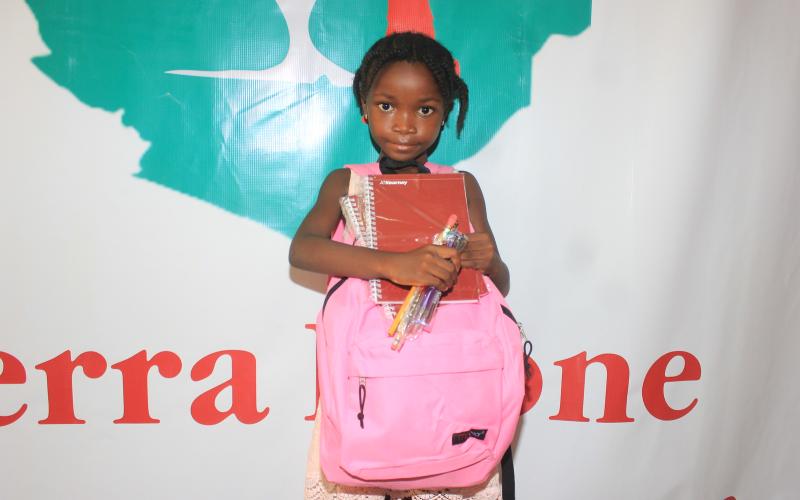
If you live in a country where going to school and getting an education is a normal, expected part of life, you are considered fortunate. Each year, in Africa, about 42 million school-aged children don’t have the opportunity to receive an education. Two-thirds of these children who don’t get the chance to go to school are girls, and unless aided, their prospects for the future are bleak.
Girls Trapped in Poverty
Poverty is cited as the number one thing keeping young girls in Africa away from school. Without an education, African girls are more likely to remain trapped in poverty.
-
They are more likely to marry as children, with one out of nine married before age fifteen.
-
Sixty percent of unschooled girls get married before age 18.
-
These child brides exhibit signs of having experienced sexual abuse, post-traumatic stress disorder, and often live with symptoms of severe depression.
-
When these young brides, who were denied an education, become pregnant, the youngest of them are five times more likely to die in childbirth than young women giving birth in their twenties, and the young mothers who survive are more likely to have large families and to perpetuate the cycle of poverty.
-
They are more likely to contract the HIV virus.
-
They are more likely to be victims of domestic violence.
The Difference an Education Makes
Education is more than reading some books and learning to do arithmetic for young girls in Africa. It is a source of empowerment.
Education is like a brick of seltzer that drops into a pool of water. Just like a brick of seltzer sends out ripples to change the surface of the water and bubbles change everything below the surface, an education changes the surface and what happens unseen below the surface of a child’s life. It changes the way others see the child, it changes the child internally, and it spreads the benefits to the child’s community and family.
Girls in Africa who are able to get an education play a key role in reducing poverty in their communities. These girls:
-
Are able to earn about 25 percent more over the course of their lives.
-
Have fewer children to support with their higher incomes.
-
Are less likely to contract the HIV virus.
-
Can help to increase environmental awareness, leading to increased food production for impoverished communities.
-
Are better able to communicate effectively with domestic partners and outsiders, leading to reduced domestic violence as well as increased trade.
-
Are more likely to stand up for themselves, their families, and their communities.
-
Are more likely to work to educate their own children, thus breaking the cycle of poverty for generations to come.
Breaking Down Roadblocks to Education
Even though education has been considered a basic human right since 1948, children in economically disadvantaged regions simply have not been able to consistently gain access to an education. This is especially true for young girls.
-
Fear of cultural change and inability to purchase needed school supplies are two of the common reasons girls are kept away from school in these poor communities.
-
Fear of cultural change can’t be tackled by an external force, it can only be addressed internally, through education, and by giving people in the affected communities the chance to see that educated girls improve the quality of life for everyone.
-
Changing a paradigm of this magnitude takes time, and it begins with the girls who are given the chance to get an education.
-
This means taking poverty out of the mix by giving them access to the books, school supplies, and clothing needed to attend school.
-
At Develop Africa, we are working to change this paradigm by providing books, school supplies, scholarships, as well as basic needs such clothing to wear to school and mosquito netting to prevent malaria for these impoverished African children.
You Can Help Educate a Girl in Africa
Here is how you can help.
You can play a key role in improving a child’s life when you help educate a girl in Africa through our child sponsorship program or by donating either funds or needed educational supplies.
-
Child sponsorship: Through our child sponsorship program, you can browse through pictures of children who need sponsors so they can get an education.
-
You can read their stories.
-
Then, you can either choose a child you feel a connection with to sponsor or let us select the child in the greatest need.
-
As a sponsor, you commit to providing $30 per month (less than the cost of a daily cup of coffee) for the education and care of the selected child, and in return you get information, letters, and photos of the child. More importantly, you get to know you are changing a child’s life and future in a positive way.
-
-
Donating: We also make it easy to make a one-time contribution to the education of children in Africa.
-
Cash donations are accepted through the website or regular mail.
-
We welcome donations of books, electronics, and school supplies, which are cherished by the eager-to-learn children who gain access to the educational items through your generous donations.
-
Sources:
http://www.peoplepower.co.tz/aspire/article/?id=57
http://unchronicle.un.org/article/importance-educating-girls-and-women-fight-against-poverty-african-rural-communities/
http://www.icrw.org/child-marriage-facts-and-figures

